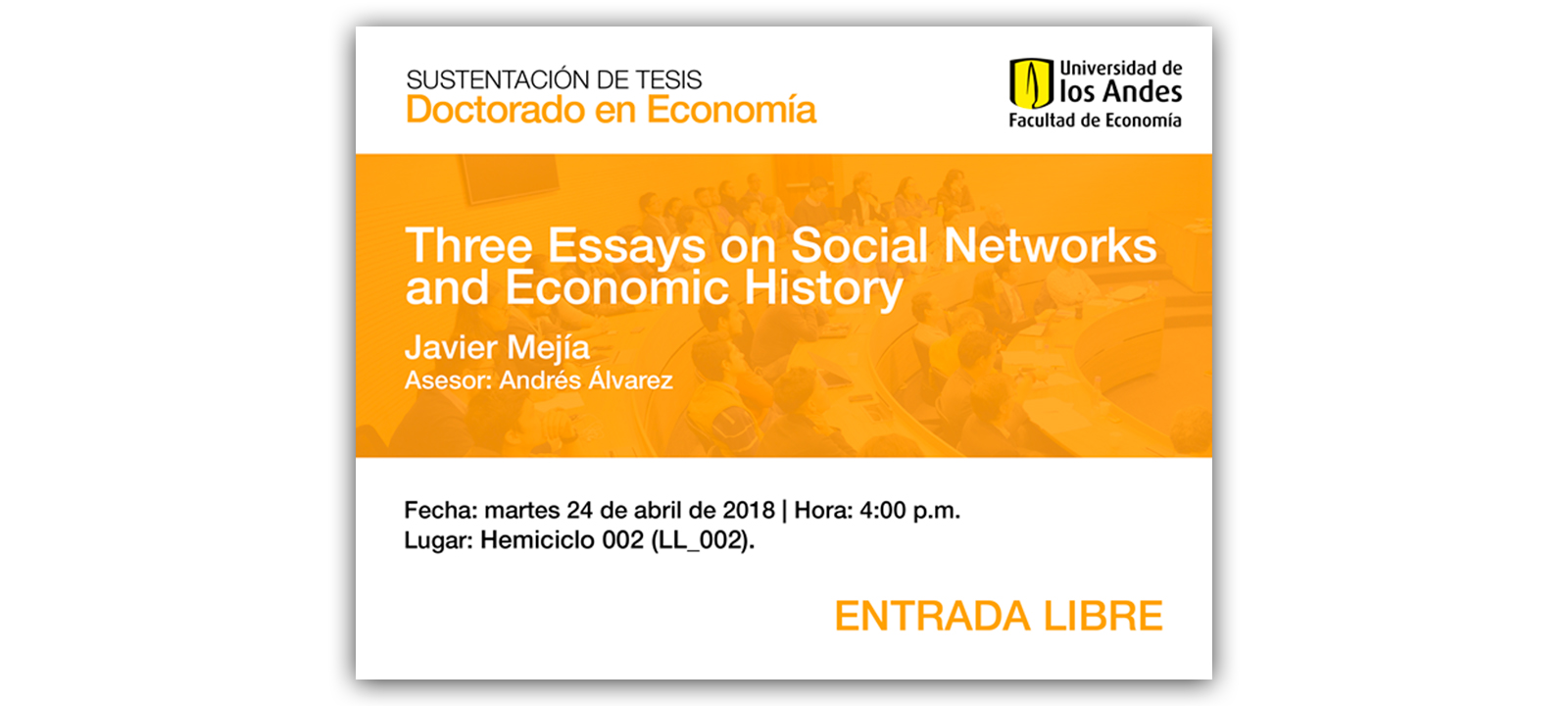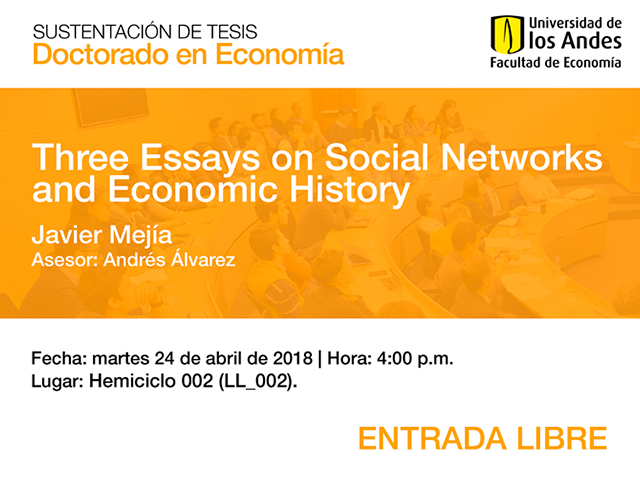Sustentación Tesis Doctorado

Abstracts
Paper 1: Social Networks and Entrepreneurship. Evidence from a Historical Episode of Industrialization
Abstract: This paper explores the relationship between social networks and entrepreneurship by constructing a dynamic social network from archival records. The network corresponds to the elite of a society in transition to modernity, characterized by difficult geographical conditions, market failures, and weak state capacity, as in late 19th and early 20th century Antioquia (Colombia). With these data, I estimate how the decision to found industrial firms was affected by the position of individuals in the social network. I find that individuals more important bridging the network (i.e. with higher betweenness centrality) were more involved in industrial entrepreneurship. However, I do not find individuals with a denser network to be more involved in this type of activity. The rationale of these results is that industrial entrepreneurship was a highly-complex activity that required a wide variety of complementary resources. Networks operated as substitutes of markets in the acquisition of these resources. Thus, individuals with network positions that favored the combination of a broad set of resources had a comparative advantage in industrial entrepreneurship. I run several tests to prove this rationale.
Paper 2: Social Networks and Modern Economic Growth. A Unified Growth Approach
Abstract: This paper presents a theoretical model that analyses how non-market interactions might have affected long-term economic growth. The model describes a society with two sectors and several production technologies. The knowledge required for using the most advanced technologies comes from social interaction. This lead households to invest in such activity. The model predicts that societies with fewer restrictions to social interactions during their preindustrial period should have adopted the most advanced technologies more quickly, transiting to a sustained-growth regime earlier. The model also predicts that these initial differences would have generated persistent effects that can explain some of the current income disparities across societies. In that sense, this paper suggest that social network structure might be interpreted a fundamental cause of growth. Simulations for relevant scenarios accompany the analytic results of the model.
Paper 3: A Network Formation Theory of Social Capital.
Abstract: This paper offers microfoundations to the process of social-capital accumulation. In particular, it proposes a network formation model that replicates a reasonable networking environment. It presents rational agents with heterogeneous and non-rival endowments that can be transmitted through social interaction. Thus, social interaction--i.e. forming social ties--can generate profitable opportunities. The paper finds that, if the initial-interaction cost is low enough and agents have perfect foresight, individuals construct networks as if they were investing in (social) capital. The dynamics of the model describes a process in which individuals increase the number of ties and accumulate resources initially embedded in the network. This leads to a reduction in the diameter of the network and a perpetuation of the socialization process. In such a way, it conciliates the networks and social-capital literatures, allowing them to fit in mainstream macroeconomic theory.

